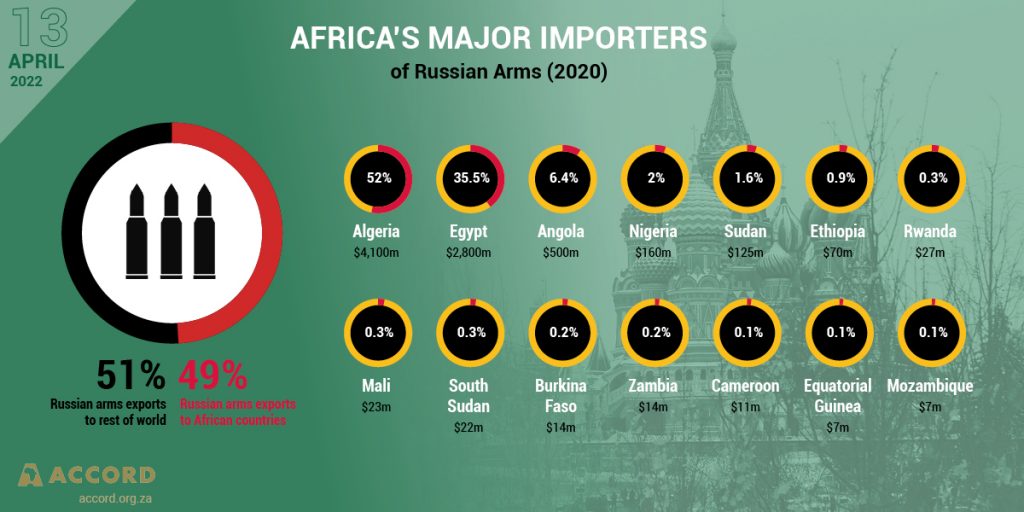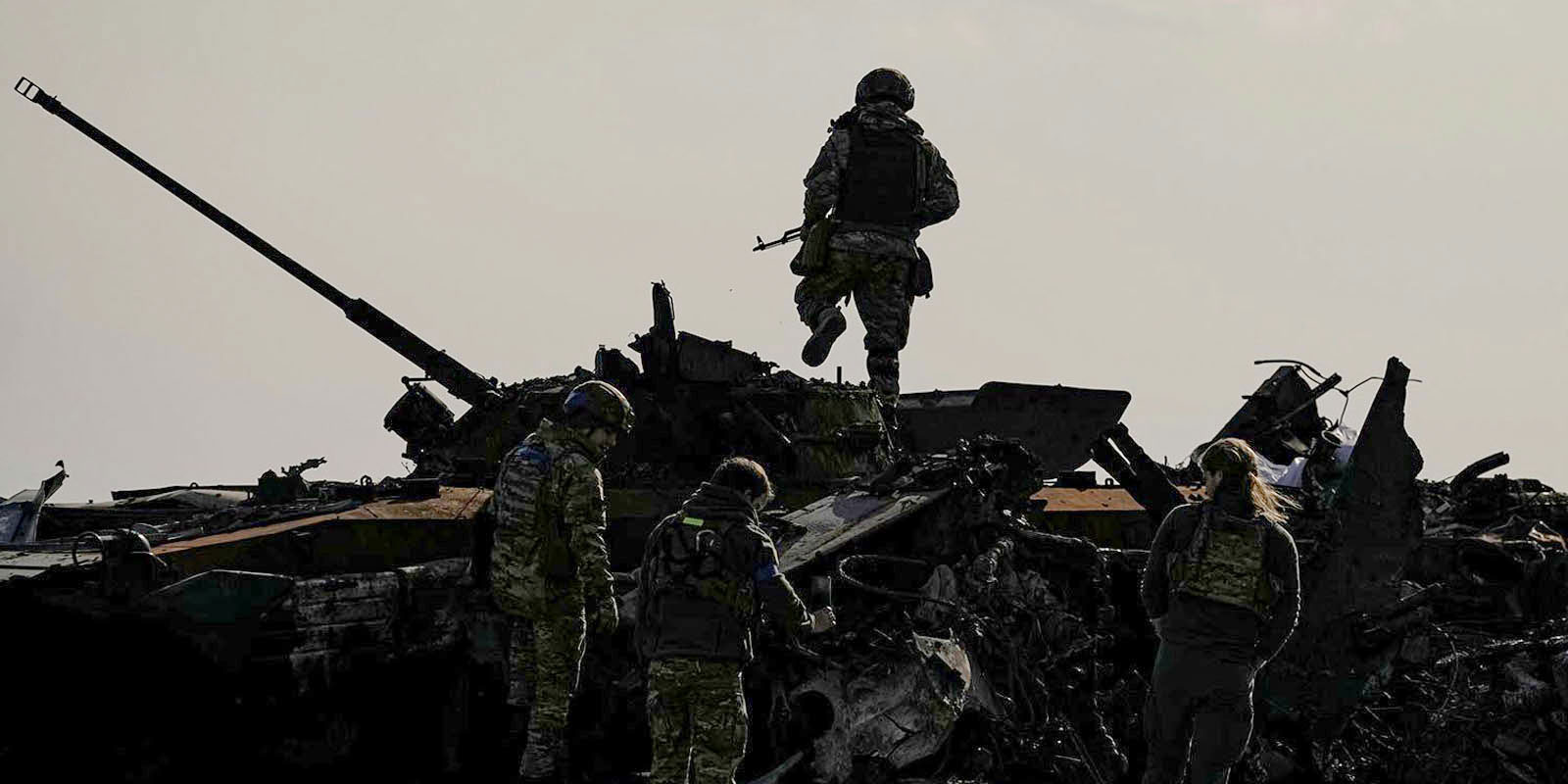It has been over a month since Russia invaded Ukraine. The adage comes to mind – in every crisis there is an opportunity. As Africa prepares for the inevitable political and economic fallout, it may be an opportune time for some African countries to formulate new political and economic policies that may benefit from a shift in global markets.
Historically, support for the Soviet Union and later Russia was seen as an alternative to Western imperialism and capitalism. The Soviet Union was influential in several liberation wars in the SADC region, namely, Angola, Mozambique, Namibia, South Africa, and Zimbabwe.
Tweet
African students
African students studying in Ukraine found themselves stranded and desperate to escape. There have been many reports detailing the mistreatment of both African students and residents largely due to racist evacuation measures. Media reports and social media videos have highlighted the discriminatory practices with claims of Ukrainian security personnel refusing to allow them to board transport heading towards the Ukraine-Poland border. Because of the lack of African embassies in Kyiv, diplomatic interventions were made from African embassies in Warsaw.
What happens now to the students whose futures were leveraged on finishing their studies to break their cycle of poverty? This is also true for many Africans who were making a living sending money home to support their parents and extended families. Compelled to redress the discriminatory evacuation measures, Hungary agreed to admitGhanaian students who fled Ukraine to continue their studies. This is an important development as some students were not willing to return home because of the uncertainty over the future of their education. Hopefully, other European countries will follow suit and accept desperate students whose studies are left abandoned.
Food security
The invasion has had detrimental consequences for African households, the agricultural sector, and food security. The overdependence on wheat and fertilizer imports from Russia and Ukraine is a concern as they constitute almost 30 percent of global wheat exports. The United Nations (UN) estimates on trade and development show that African countries imported wheat from Russia and Ukraine worth about US$5.1 billion between 2018 and 2020.
Kenya, Sudan, and Ethiopia are experiencing rising food prices. With elections later this year in Kenya, a recent coup in Sudan and the ongoing civil war in Ethiopia the elevated wheat prices may fuel anger leading to insecurity. Rising oil prices will exacerbate the situation as transport costs increase, so too will food prices, creating a vicious cycle. Fuel prices across the continent have seen steep increases.
Seeing an opportunity, Nigerian businessman Aliko Dangote recently launched a 3-million-tonne fertilizer plant to target African and foreign markets as a means to mitigate the expected global shortage.
An example of strategy rethinking at short notice is Kenya, experiencing a direct impact on their tea market. Kenya was faced with the double threat of falling prices and finding new markets for over 1 million kilos of tea meant for the Russian market, demonstrating the need for trade strategy agility.
Tanzanian President Samia Suluhu Hassan proposed a solution for the EU gas dilemma. Tanzania, in partnership with European fuel and gas companies, could develop measures to facilitate the exporting of gas to Europe to fill the potential void and lessen the over-reliance on Russia
Tweet
Natural Resource Opportunities
After Russia, South Africa is the world’s second-biggest producer of palladium and is positioned to benefit from the sanctions as supply concerns grow. Palladium is an important component used in automobiles and electronics, and has surged to a seven-month peak. With many turning to gold as a safe-haven, this too may benefit South Africa as a major exporter of gold as the Rand has been strengthening due to rising global prices for the precious metal.
The European Union (EU) continues to purchase gas from Russia while trying to cripple its economy with sanctions. At current prices, Russia earns about $1 billion a day exporting its oil and gas. The EU has been formulating contingency measures to stop its reliance on Russia. A viable option may be to look South, as Africa has gas reserves and can offset some of the 150-190 billion cubic metres Russia supplies yearly.
EU leaders plan to ban the buying of Russian coal from mid-August. President of the European Commission Ursula von der Leyen stated that an EU import ban on Russian coal would cost Russia 4 billion euros a year. In anticipation of a European energy crisis, analysts have forecasted South Africa as an option for European coal plants seeking high-quality coal.
European Commission spokesman Tim McPhie confirmed recent meetings with several African energy delegations. “When it comes to finding alternative gas suppliers, the E.U. is in discussion with a very wide range of potential exporters — including a number of countries in Africa,” McPhie said.
Tanzanian President Samia Suluhu Hassan proposed a solution for the EU gas dilemma. Tanzania has the sixth-largest gas reserves on the continent estimated at 57 trillion cubic feet (1.6 billion cubic metres). Tanzania, in partnership with European fuel and gas companies, could develop measures to facilitate the exporting of gas to Europe to fill the potential void and lessen the over-reliance on Russia.
As the continent’s largest gas producer, Nigeria is also moving towards potentially filling the gas void by continuing construction on the Trans-Saharan Gas Pipeline (614km), which will carry the gas to Algeria, then to Europe.
Several African countries with large gas reserves have, however, failed to attract sufficient investment to build gas infrastructure projects that could supply the European market. For instance, Angola, with 13.5 trillion cubic feet (382 billion cubic metres) of known gas reserves, has been unable to slow a decline in oil and gas production in the last five years. Without the proper investment the infrastructure will not grow or perform optimally.
Mozambique has about 100 trillion cubic feet (2.8 trillion cubic metres) of natural gas reserves, and accounts for almost 1 percent of the world’s total reserves. However, the continuing insecurity in northern Mozambican, a gas-rich area, has stalled exploration activities on a planned $50bn project. In this instance, the insecurity in Ukraine should have been the opportunity for Mozambique to become a key gas supplier but its own insecurity concerns have thwarted that possibility.
Deep ties
Historically, support for the Soviet Union and later Russia was seen as an alternative to Western imperialism and capitalism. Both Angola and Mozambique’s flags are heavily influenced by Soviet imagery with Mozambique having the image of an AK-47 rifle on its flag. The Soviet Union was influential in several liberation wars in the Southern Africa Development Community (SADC) region, namely, Angola, Mozambique, Namibia, South Africa, and Zimbabwe. More recently, private military corporations from the Russian paramilitary group Wagner, have been operating in several countries in southern, central and west Africa under the guise of fighting extremists.
Russia also remains one of the largest arms suppliers to the continent.

The African Union (AU) issued a statement condemning Russia’s invasion and called for an immediate ceasefire. Kenya’s Ambassador to the UN Security Council (UNSC) was quick to question the Russian invasion and called for respect of territorial integrity and national sovereignty. Gabon and Ghana, the two other African members on the UNSC followed suit and expressed disappointment over Russia’s actions.
As the crisis developed several African leaders were placed in a difficult position of trying to remain neutral. The two economic giants on the continent, South Africa and Nigeria, delivered relatively subdued early responses. Initially, South Africa did not issue a statement, but after the full-scale invasion, the government called for Russia to withdraw its forces. However, this language soon changed to a call for a negotiated truce that angered South Africa’s western partners because it framed the situation as a conflict between Ukraine and Russia, rather than identify Russia as the aggressor that invaded Ukraine. The Nigerian government chose to note its surprise about the invasion but neither condemned it nor called for a cessation of hostilities. Although, Nigeria did vote to demand the immediate withdrawal of Russian troops from Ukraine, whereas South Africa abstained. Subsequently, South Africa has stated Russia’s actions in Ukraine “has violated international law.” While critical of sanctions and other unilateral actions by states in response, South Africa has called for “consistency in the approach of the international community to countries that violate international law” citing unequal responses to the case of Israel’s continued occupation of Palestine. South Africa remains steadfast in calling for a negotiated end to the conflict as “in the end negotiations will end the conflict.”
Way Forward
The ensuing war in Ukraine has already impacted Africa with fleeing students facing human rights abuses, fuel and transport price hikes, growing concerns over wheat imports impacting food security across the continent. However, this may also provide some African countries with new opportunities to develop their infrastructure, gain access to new markets and develop trade strategy agility. African countries should act on this possibility to strengthen their policy formulation and implementation to benefit their citizens.
Dr Craig Moffat is visiting research fellow at the Norwegian Institute of International Affairs (NUPI).


